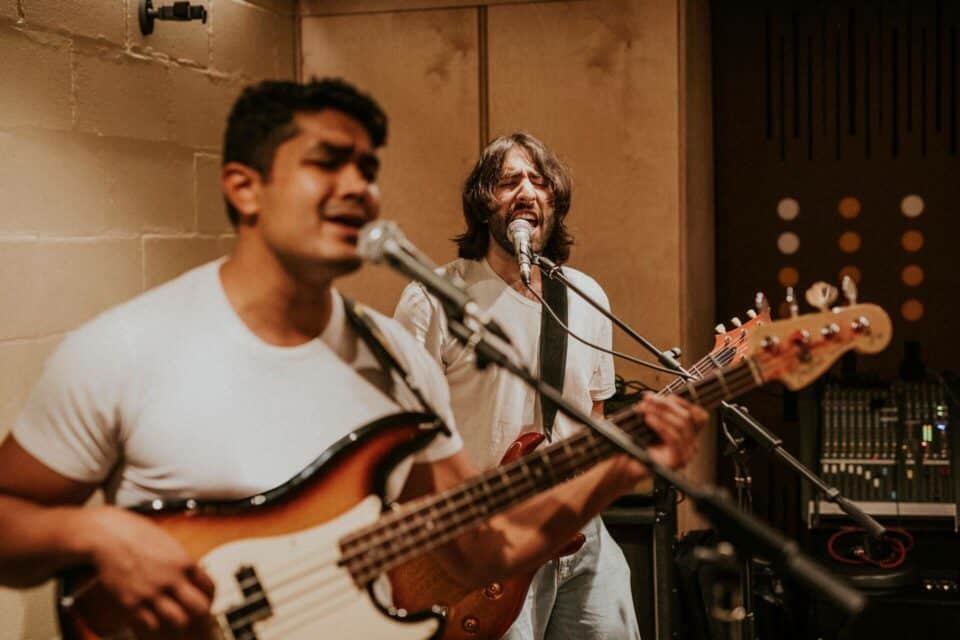As a music enthusiast and an expert in the field, I cannot stress enough the importance of safeguarding the hearing health of musicians. The pursuit of musical excellence often exposes artists to prolonged exposure to high sound levels, which can lead to irreversible hearing damage. Today, we will delve into the topic of musicians and hearing loss, shedding light on the causes, effects, prevention, and coping strategies surrounding this concerning issue.
The Prevalence of Hearing Loss Among Musicians
Musicians, with their regular exposure to loud music and amplified sound, are at a significantly heightened risk of developing hearing loss. According to recent studies, they are four times more likely to experience hearing loss compared to the general population. This alarming statistic highlights the urgent need for immediate attention and proactive measures to safeguard the hearing abilities of these incredibly talented individuals. By implementing hearing protection strategies, such as using earplugs or monitoring sound levels during performances and practices, musicians can ensure the longevity of their auditory health and continue sharing their gift of music with the world.
Understanding the Causes of Musicians’ Hearing Loss
- Occupational Hazard: Musicians face occupational hazards such as repeated exposure to loud music during rehearsals, concerts, and recording sessions. The cumulative effect of prolonged exposure to amplified sound increases the risk of noise-induced hearing loss (NIHL).
- Improper Use of Personal Protective Equipment (PPE): Inadequate or improper use of hearing protection devices, such as earplugs, can further contribute to hearing damage. Musicians should be educated on the correct use and selection of PPE to ensure optimal hearing protection without compromising the quality of their performances.
- Monitor and Sound Engineer Issues: Sound monitors play a crucial role in live performances, helping musicians stay in sync with the music. However, poor monitoring practices, such as excessively loud stage monitors or improper sound engineering, can expose musicians to excessive sound levels, leading to hearing problems.
The Impact of Hearing Loss on Musicians
- Artistic and Professional Limitations: Musicians with hearing loss may experience difficulties in perceiving and reproducing certain sounds, leading to compromised musical abilities. The subtle nuances and intricacies of music can be lost, affecting the quality of performances and overall artistic expression.
- Mental Health and Emotional Well-being: Musicians often rely on their auditory senses to connect with their audience and find solace in their craft. Hearing loss can cause emotional distress, isolation, and even depression, as the loss of this fundamental sense can profoundly impact their identity as musicians.
- Communication Challenges: Collaborative work in the music industry heavily relies on effective communication between musicians. Hearing loss can hinder musicians’ ability to communicate effectively during rehearsals and recordings, leading to misinterpretations, delays, and potential conflicts.
Preventive Measures for Musicians
- Hearing Protection: Musicians should prioritize the use of proper hearing protection devices, such as musician’s earplugs, custom-fit earplugs, or noise-canceling headphones. These devices provide adequate sound attenuation while preserving the integrity of the music, ensuring optimal hearing health.
- Regular Hearing Check-ups: Musicians should undergo periodic hearing evaluations to monitor their hearing abilities and detect early signs of hearing loss. Early intervention can help prevent further deterioration and allow for timely management.
- Sound Monitoring and Engineering: Musicians should work closely with sound engineers to ensure proper sound monitoring and management during live performances. This collaboration can help create a safe and controlled listening environment, minimizing the risk of excessive sound exposure.
Coping Strategies for Musicians with Hearing Loss
- Assistive Listening Devices: Advancements in technology have led to the development of assistive listening devices that can enhance sound perception for musicians with hearing loss. Devices such as in-ear monitors and hearing aids tailored specifically for musicians can improve their ability to hear and perform at their best.
- Rehabilitation and Training: Musicians experiencing hearing loss can benefit from audiological rehabilitation programs that focus on maximizing their residual hearing and adapting to their changing auditory abilities. Additionally, training in music theory and composition can help musicians explore alternative avenues of artistic expression.
- Support Networks: Joining support groups or seeking counseling can provide musicians with a safe space to share their experiences, emotions, and challenges related to hearing loss. Connecting with fellow musicians facing similar struggles can foster a sense of belonging and emotional support.
In The End
Hearing loss among musicians is a pervasive issue that demands our attention. By understanding the causes, effects, preventive measures, and coping strategies associated with hearing loss, we can create a safer and more supportive environment for musicians to thrive. Let’s work together to protect the precious gift of hearing and ensure that the melodies of talented musicians continue to resonate for generations to come.
We hope you found this information to be both useful and informative. If you believe that you have experienced hearing loss or would like to schedule an appointment for a hearing test, please contact us. Our friendly staff of hearing health professionals are ready to help you with all of your hearing related needs.

